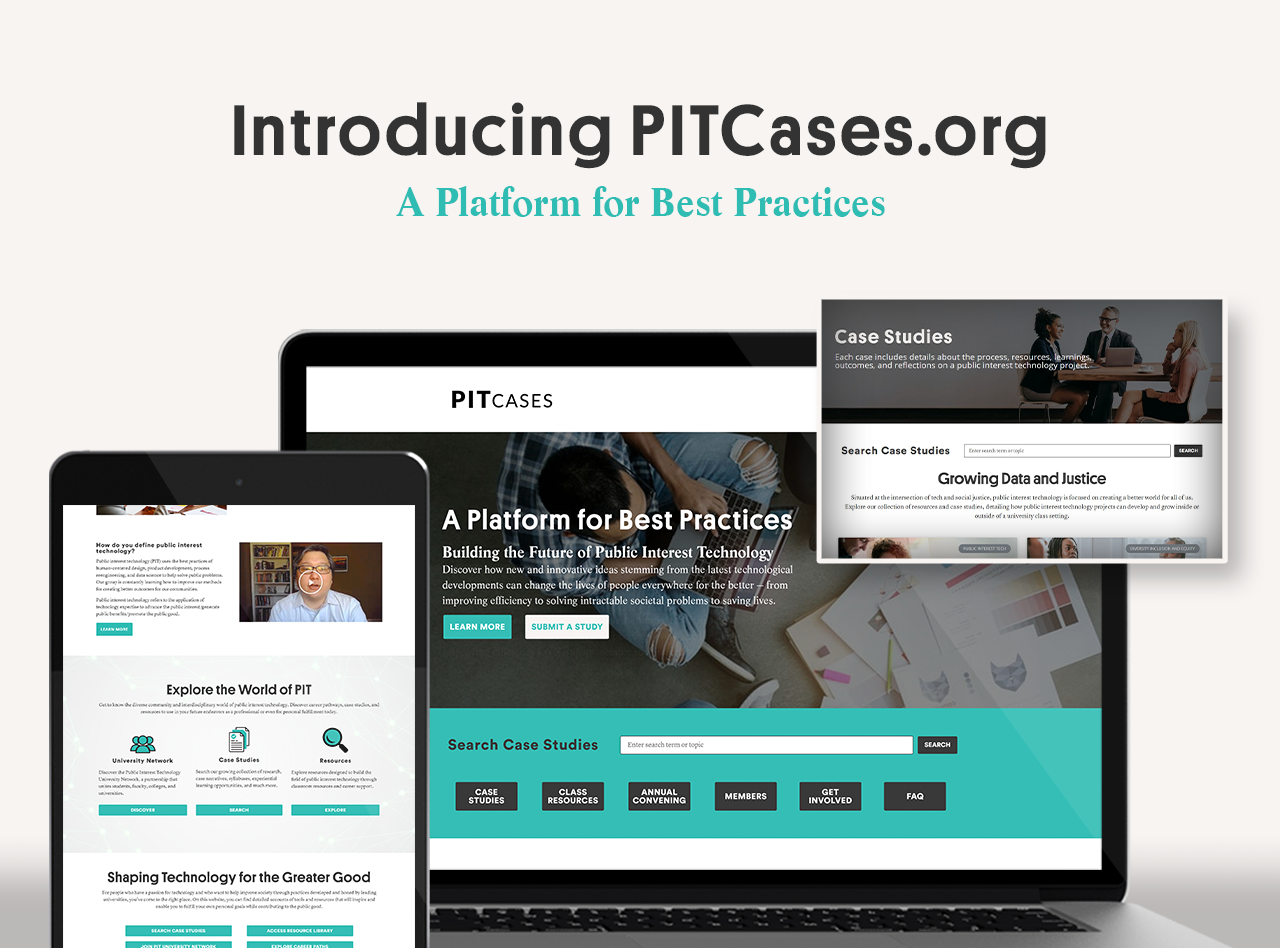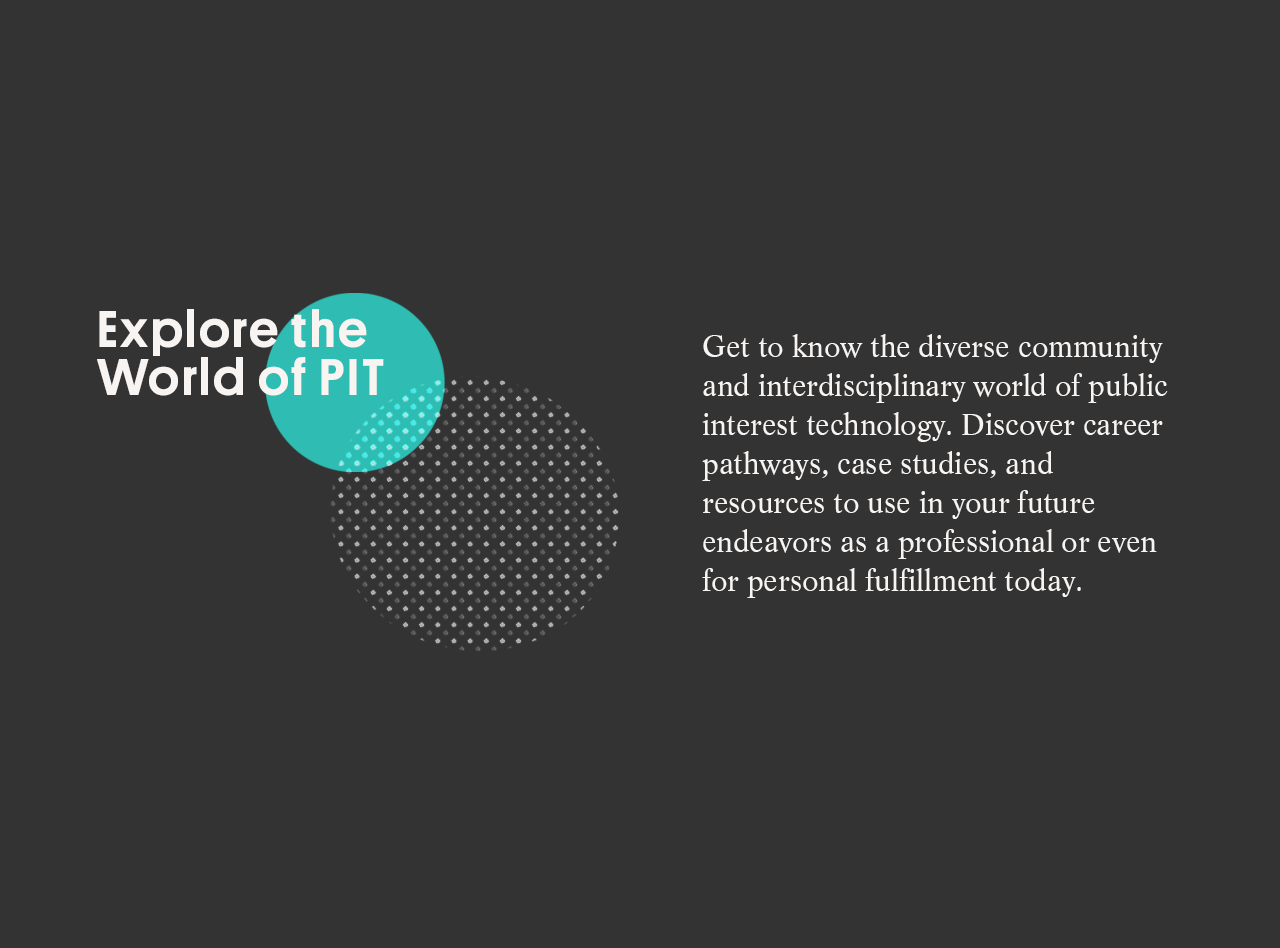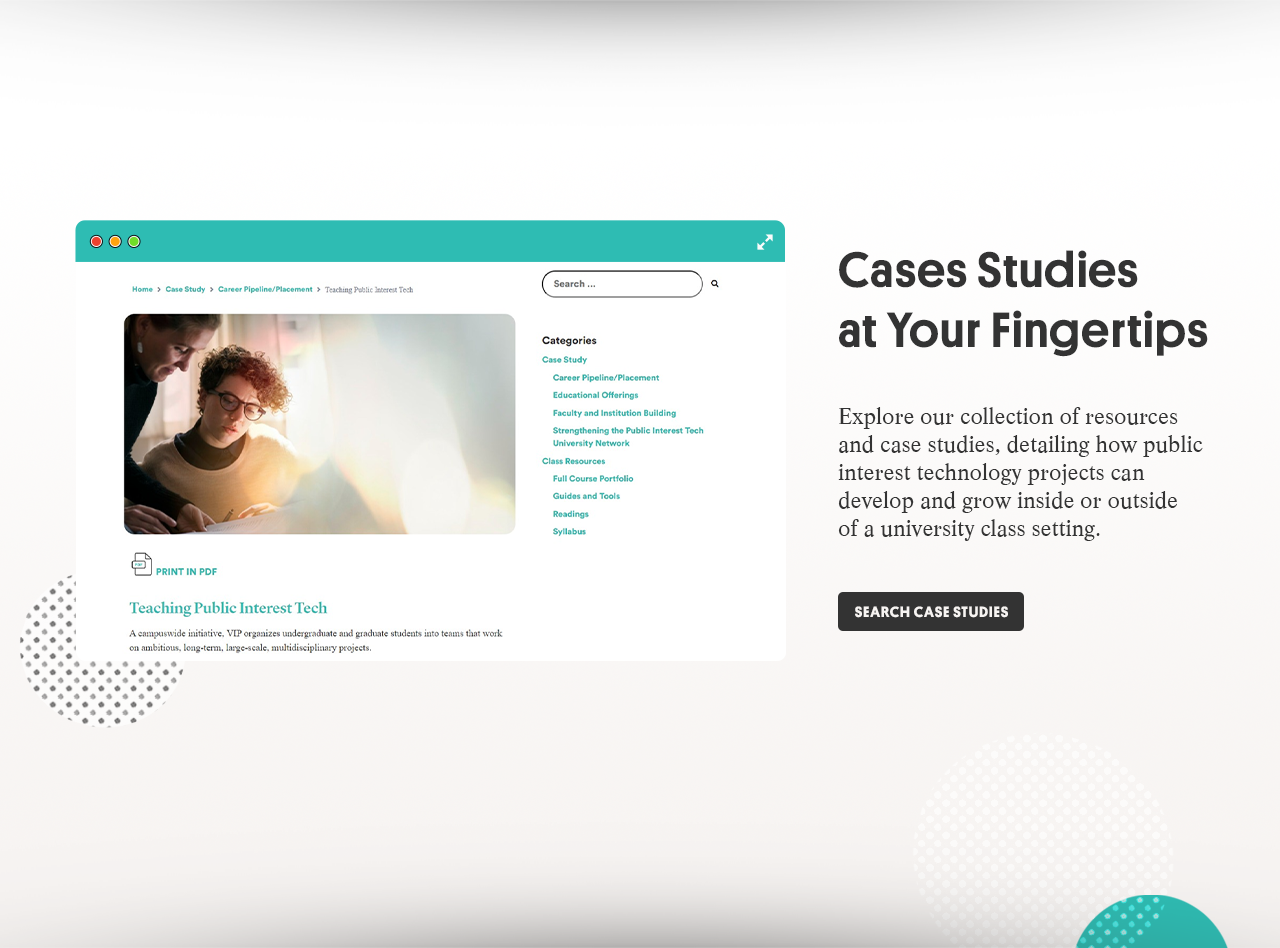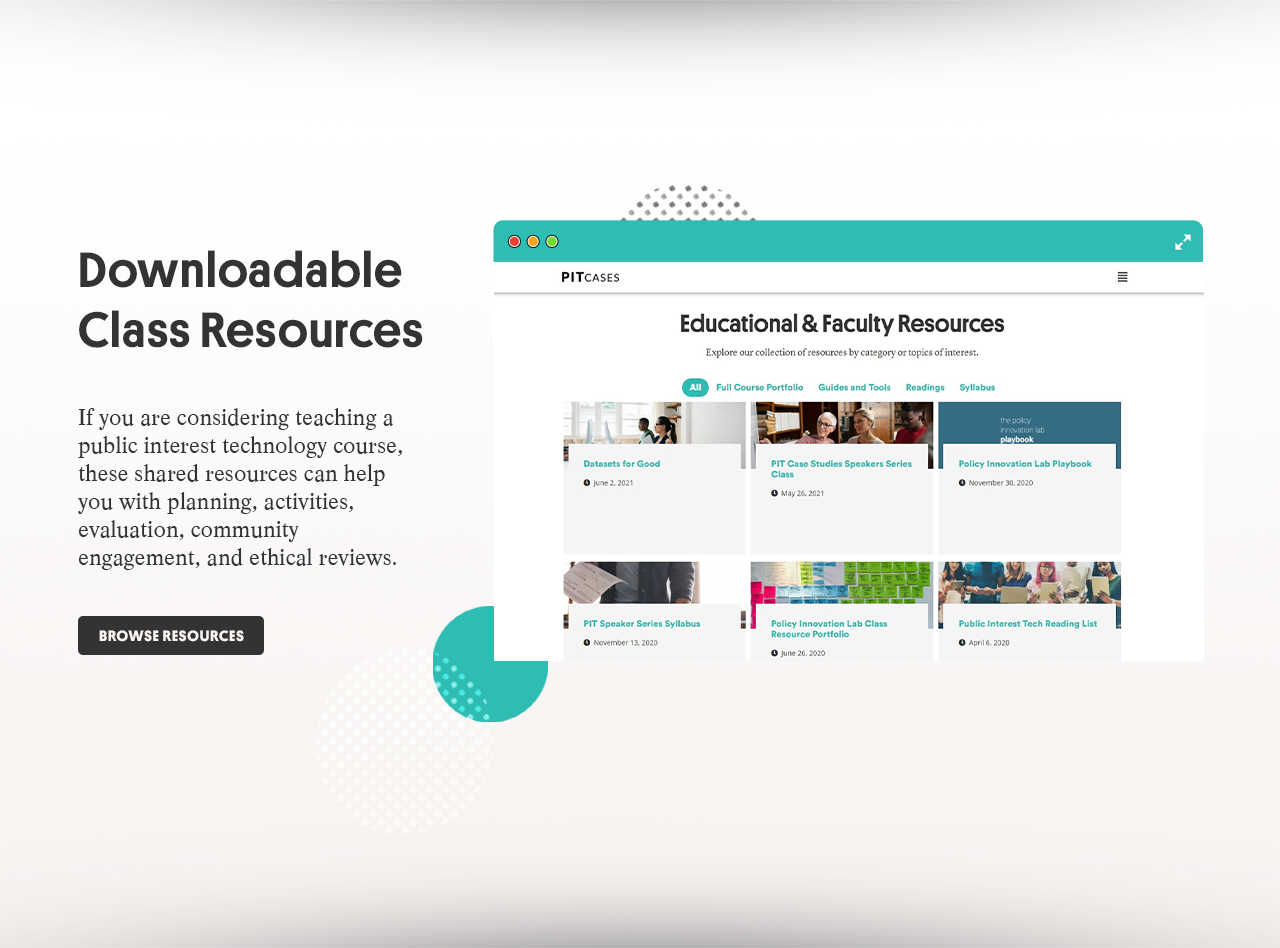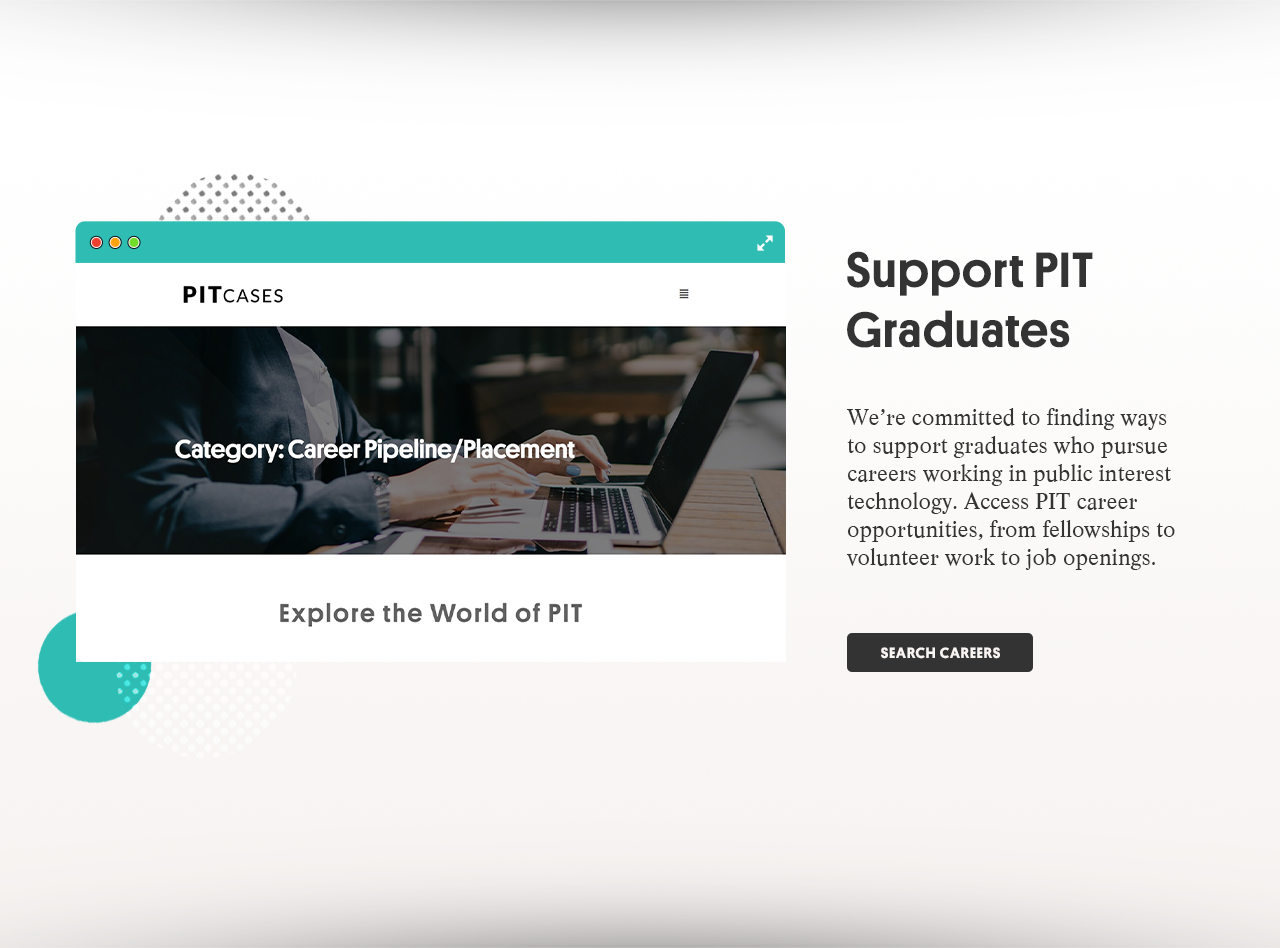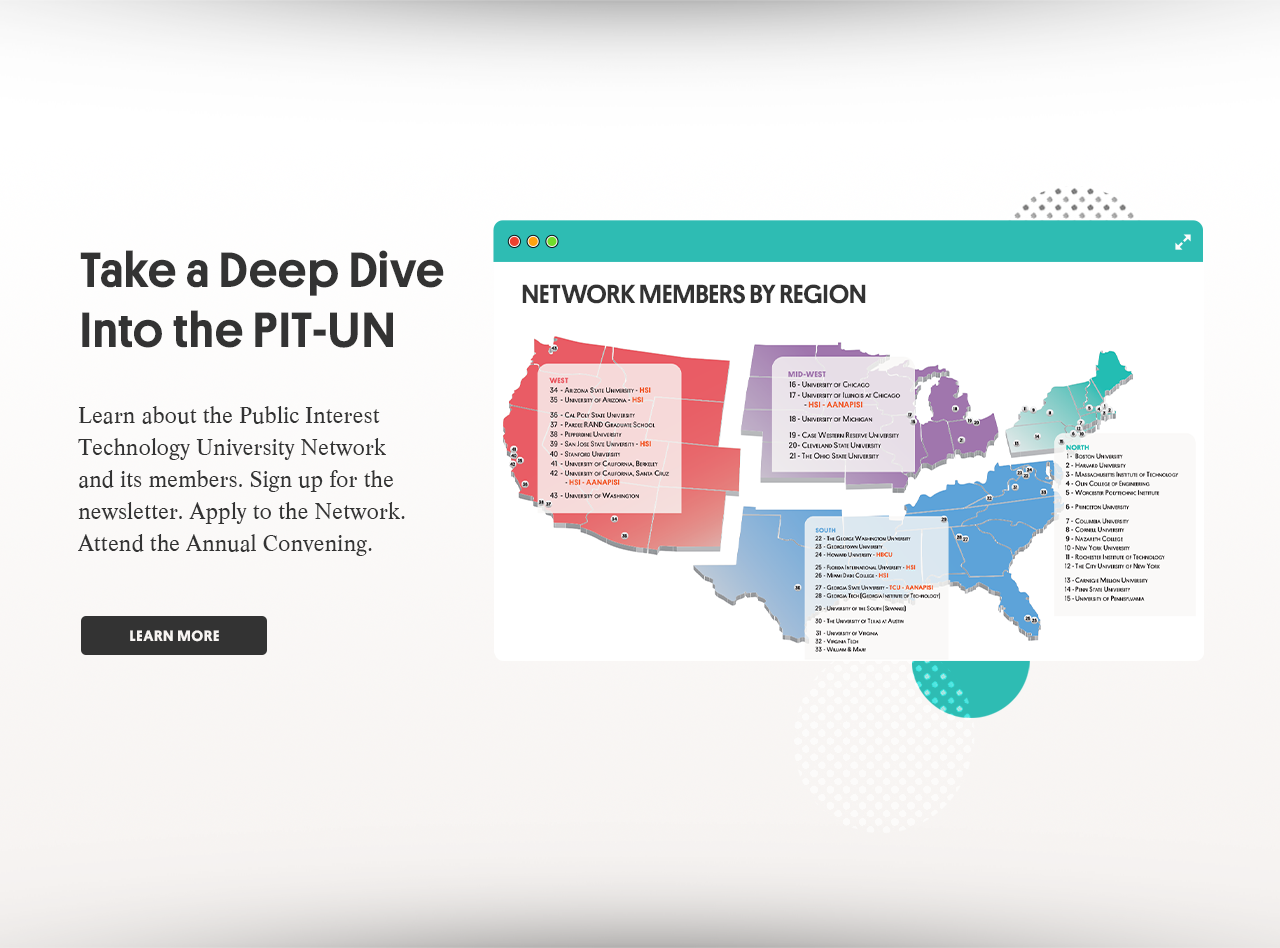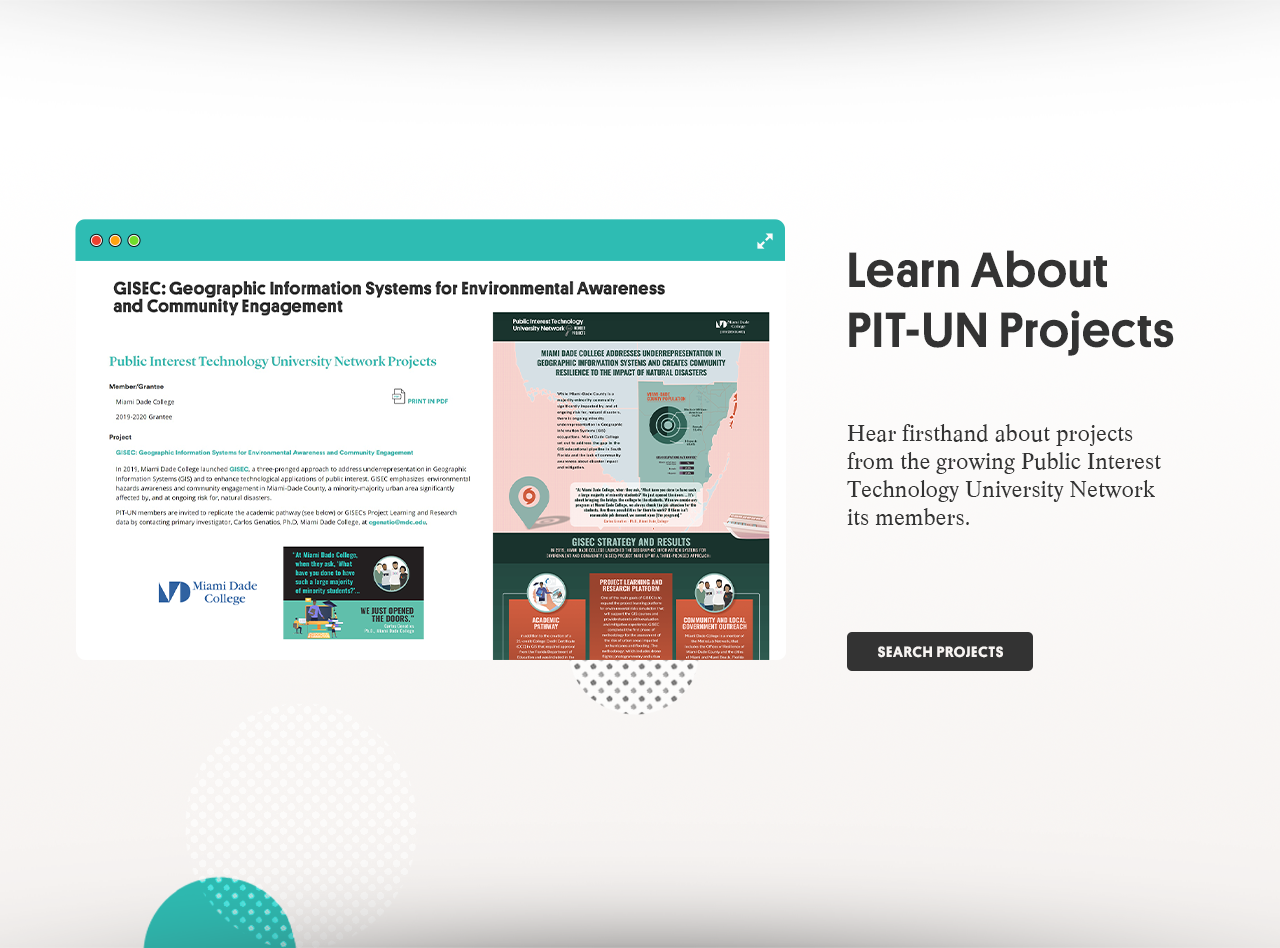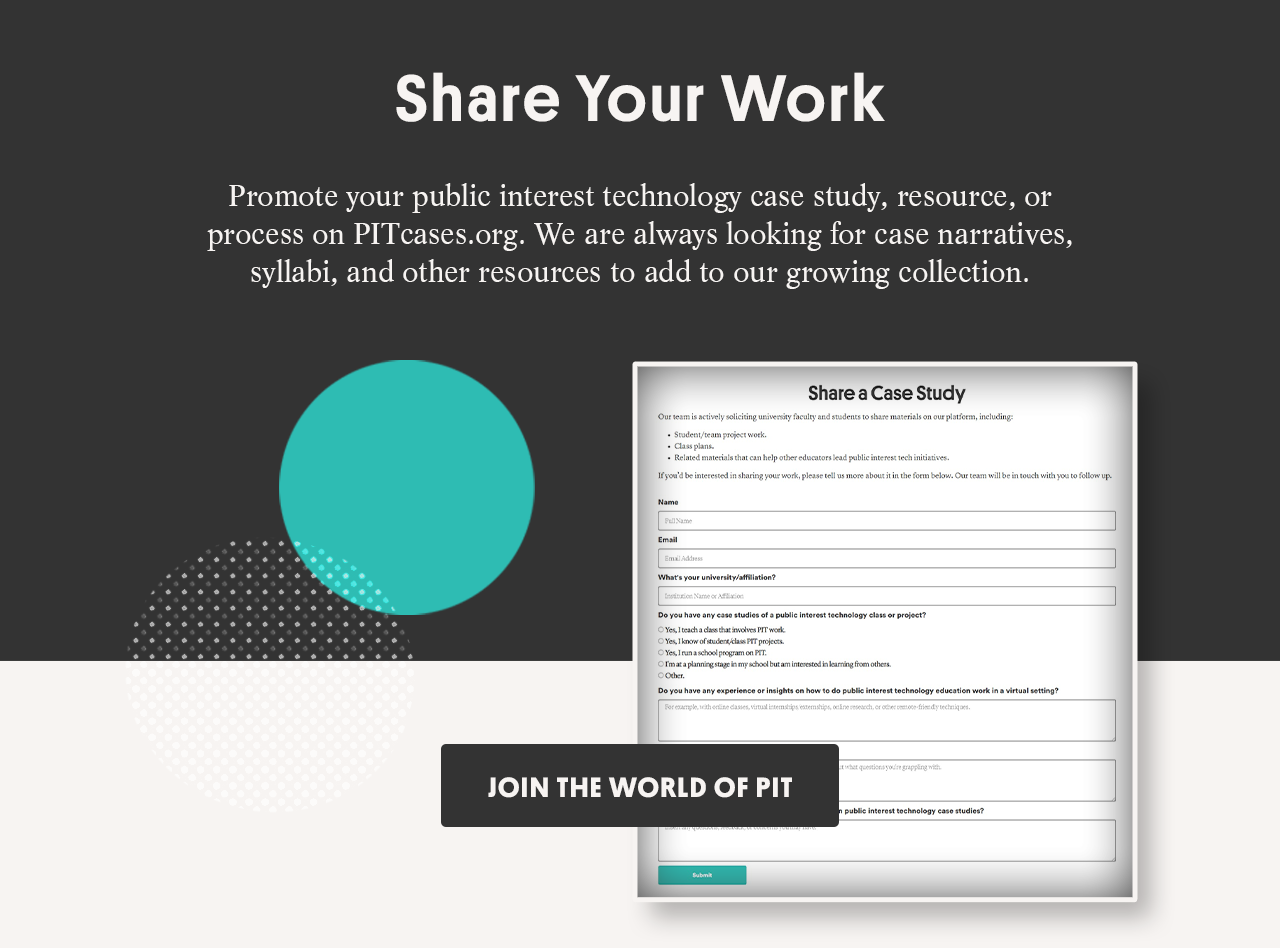Public Interest Technology University Network Projects
Member/Grantee
- Georgetown Law Center’s Tanina Rostain
- Howard University’s Noha Hazzazi
- Stanford Legal Design Lab’s Margaret Hagan
Project
PIT-UN Launches PIT Case Study and Resources Website
If you asked faculty from the Public Interest Technology University Network’s (PIT-UN) 21 founding institutions what was needed to create scalable public interest tech pedagogy, many of them would point to a centralized hub of PIT class resources, and case studies where educators can share project-based work, students can find proof of PIT’s viability, and supporters can learn more about the field.
This is exactly why three PIT-UN members — Howard University’s Noha Hazzazi, Georgetown Law Center’s Tanina Rostain, and Margaret Hagan from Stanford Legal Design Lab — joined together to develop a user-friendly community platform to showcase best practices from existing PIT projects. The joint effort resulted in the newly launched pitcases.org, a case study website to showcase narratives of past PIT projects.
“The website can give all the stakeholders very concrete examples of what public interest technology is, and how universities can contribute to solutions in this area. The website gives detailed narratives about how students go from initial course curriculum, and external partnerships, to full-grown initiatives that can have public interest impact,” said Margaret Hagan, co-Pls, Stanford Law School, Legal Design Lab
With the initial website launch delayed by COVID-19, PIT-UN used that time to work with the project team to ensure that the site would not only deliver case studies, but also provide resources for students, faculty, and practitioners who want to better understand the PIT ecosystem. Today, the site reflects both the initial inspiration for the site, found in the key case studies developed by the principal investigators, and the full vision of the principal investigators, with the addition of tool kits, course materials, and PIT-related events, such as webinars and the PIT-UN Annual Convening.
Featured Case Studies
Boston Police Department Court Overtime: Data Science for Policy-Making
Building a Global Class Network
Civ Tech: Digital Tools and Access to Justice
Conducting Online Ethnographies During the COVID-19 Pandemic
Meaningful Cultural Representation in STEM Curriculum
What’s Next
The website will continue to grow as more PIT-UN members add their work to the site, and the PIT-UN webinars and articles from the monthly PIT Universe letter and PIT-related information are housed on the site.
“I would love to see more case studies of how projects can develop for several years, out of single partnership classes into scaled initiatives,” Hagan said. “Many times, [faculty] do single pilots, with a single partner in our class work. To have a bigger impact, obviously we need to get good innovations in two more jurisdictions, and with broader public reach. I’m excited to see more case studies that can address this question of scale.”
Share Your Work and Resources
“It was exciting to connect with faculty. My student fellow enjoyed working on this project. She learned so much about PIT-UN’s impact on society today and how it affects many sectors such as technological, social, law, policy, etc.,” said Noha Hazzazi, co-Pl, Howard University. “This project also helped inspire me on my [Network] Challenge Year 3 idea toward utilizing this case study platform and other created resources by PIT-UN to spread awareness in undergraduate students.”
We hope that you are similarly inspired by the materials you find on the site. If you have course materials, resources, or an event that you would like to share with the community, please contact us.

